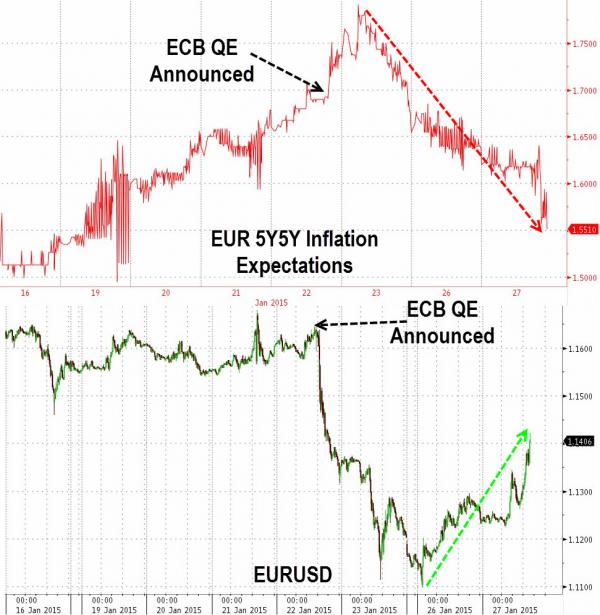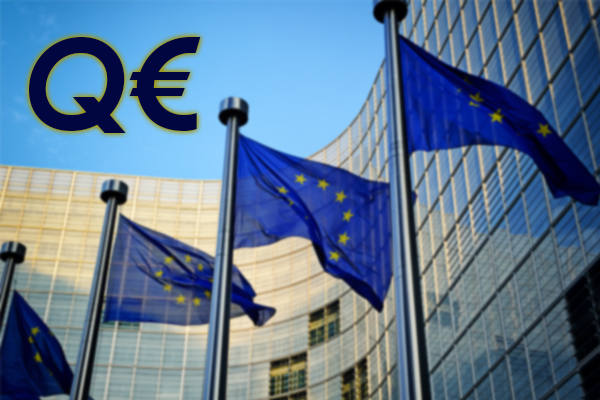After many hints and delays, the EU is announcing a quantitative easing program: €60 billion (~$70 billion) per month for at least 19 months. Will it work? As is the new conventional wisdom: when everything else fails to make economies grow, make new money and buy government bonds.
To reach this point, the president of the European Central Bank (ECB), Mario Draghi, has fought quite the political chess match. Bloomberg has an in-depth story on his journey.
Now the big question - the $1.3 trillion question - is if quantitative easing could help the European Union avoid the vicious deflationary situation it's currently facing.
Most economists agree that such quantitative easing initiatives have helped other major economies such as those in the US, the UK, and Japan to avoid recession - and perhaps even apocalyptic depression.
The challenges are different this time, however, because of the EU's unique makeup of 19 nations. The rules have different interpretations and perspectives vary depending on which country you ask.
For countries like Germany, Austria, Luxembourg, and the Netherlands, there remain large concerns over QE; Will it undermine government reform efforts? Will their tax payers be on the hook for insolvent countries like Greece?
Given the historical memory of horrendous hyperinflation, Germans are unsurprisingly hesitant of increasing the currency in circulation. "ARE the ECB's bankers making our money kaputt?” reads a fearful headline from Bild, Germany's top selling newspaper.
It is clear, though, that most other options are all expired, so the EU is actually doing it.
They're attempting Q€.
The news is being greeted with mixed reviews. Many experts say the policy will help, though less so than in other large economies like the UK and the US. Some say the ECB is acting too late. Others say the economic situation is different in Europe and the results will be unpredictable.

While at first the market reactions were exactly what the ECB wanted, the trend has reversed in the last two days. After the initial desired drop in EUR/USD (which would be helpful for exporters), the price has begun to rise again - currently it's back up to 1.14.
Financial blogs like ZeroHedge are pointing out that, "more troubling though - and the entire raison d'etre of Q€ (according to officials) - forward inflation expectations are now dramatically lower than pre Q€ levels..."
That's bad news for Mario Draghi and for Europeans facing risk of deflation - risk of declining prices, profits, incomes, employment levels, and increasing the burden of debt.
Is this trend reversal just temporary volatility before returning to a path more indicative of economic growth? Or is the European Central Bank's strategy fundamentally flawed?
It's challenging to balance optimistic visions of what could be with sober views of what is actually happening. Only time will tell.
Feel free to contact the writer and editor responsible for this story, Keenan Brugh, at [email protected]


